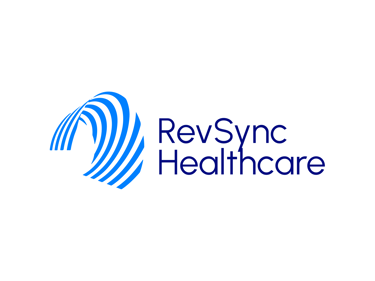Revolutionizing Denials Management: Unlocking Real ROI for Healthcare Organizations
AR Denials Management
RevSync Healthcare
9/15/20253 min read


In today’s healthcare landscape, financial stability is more fragile than ever. With labor shortages, rising operational costs, and an increase in claim denials, healthcare organizations are grappling to maintain profitability. The key challenge? The volume, complexity, and cost of handling denied claims is at an all-time high. Now more than ever, organizations need to rethink their approach to denials management and redefine what ROI really looks like.
Surge in Denials: What's Behind the Spike?
Over the past few years, claim denials have escalated across the healthcare industry, primarily due to more stringent payer requirements. From an increase in prior authorization requests to rapidly changing payer policies, providers are under intense pressure. A recent survey revealed that 38% of healthcare providers report denial rates of 10% or higher, and many are seeing rates climb above 15%. These figures indicate a major shift from the historic norm of 10% denials, which many organizations once considered acceptable.
One major driver of this surge is the growing burden of prior authorizations. As per the AMA reports average physician processes 43 prior authorizations each week, with > 25% of them being denied. The financial toll is substantial, with healthcare organizations spending an average of $181 per claim just to rework or appeal a denial. Given the rising cost of rework and the complexity of denials, healthcare providers face a serious challenge in maintaining operational efficiency and financial health. In addition to increasing denials, labor costs remain a persistent issue while availability of skilled resource gap expected to increase significantly by 2028.
The Danger of Settling for Mediocre Metrics
Many healthcare organizations still rely on outdated benchmarks to measure the success of their denials management efforts. While these traditional metrics may have been effective in the past, they can now lead to missed revenue opportunities and operational inefficiencies. A denial rate of 10% once signified optimal performance, but with increasing rejection rates, continuing to use this outdated benchmark as a standard may do more harm than good.
Furthermore, focusing only on high-dollar claims means smaller denials often go unaddressed. These "small" amounts, which many providers overlook, can represent up to 2-5% of total revenue—funds that can add up significantly over time. By ignoring these small balances, organizations are missing out on a critical revenue stream that could help improve financial performance.
Potential Strategies to Tackle Denials and Maximize Financial Returns
To successfully manage denials in today’s complex healthcare environment, organizations need a new and more comprehensive approach. The key is to implement strategies that not only reduce the volume of denials but also improve recovery rates and optimize operational costs. Here are three core strategies to consider:
Harness the Power of Advanced Analytics and AI
Leveraging data analytics and artificial intelligence is no longer optional. These technologies can help identify trends in denied claims, enabling healthcare providers to prioritize the most impactful denials.Inhouse Operations: Focus on Strategic and High-Value Activities
The inhouse denials management team should be strategically utilized to handle tasks that are complex, sensitive, or require deep institutional knowledge — areas that cannot easily be outsourced. These may include working closely with clinical teams, managing appeals that require provider-specific documentation, addressing high-dollar or high-risk denials, and refining upstream processes to prevent future denials. By focusing internal resources on strategic activities and leveraging external partners for high-volume, repetitive tasks, organizations can maximize both efficiency and financial outcomes.Outsource to Global Service Partner for Efficiency
With labor costs continuing to rise and workforce shortages on the horizon, outsourcing certain aspects of denials management to global service providers like RevSync Healthcare can offer a strategic solution. By doing so, organizations can lower operational costs and alleviate pressure on internal teams, allowing them to focus on high-priority denials and more complex issues. A well-managed outsourcing strategy can result in improved revenue recovery and reduced operating costs.
The Path Forward
As the healthcare industry continues to face rising denial rates and increased operational pressures, now is the time for organizations to reassess their denials management strategies. By embracing advanced analytics, exploring outsourcing solutions, and evolving performance benchmarks, healthcare providers can redefine their ROI and improve both revenue recovery and operational efficiency.
Want to dive deeper into these strategies and understand how to transform your denials management approach? Download our in-depth white paper, Redefining ROI in Denials Management. In this resource, we offer actionable insights and a step-by-step guide to help your organization combat rising denial rates, streamline operations, and ultimately drive financial stability and growth.
Author: RevSync Healthcare
© 2025. All rights reserved.
Get In Touch
+1-469-573-0466
info@revsynchealthcare.com
Services and Solutions
Patient Access
HIM, Coding
Revenue Cycle Management
Denials Management
